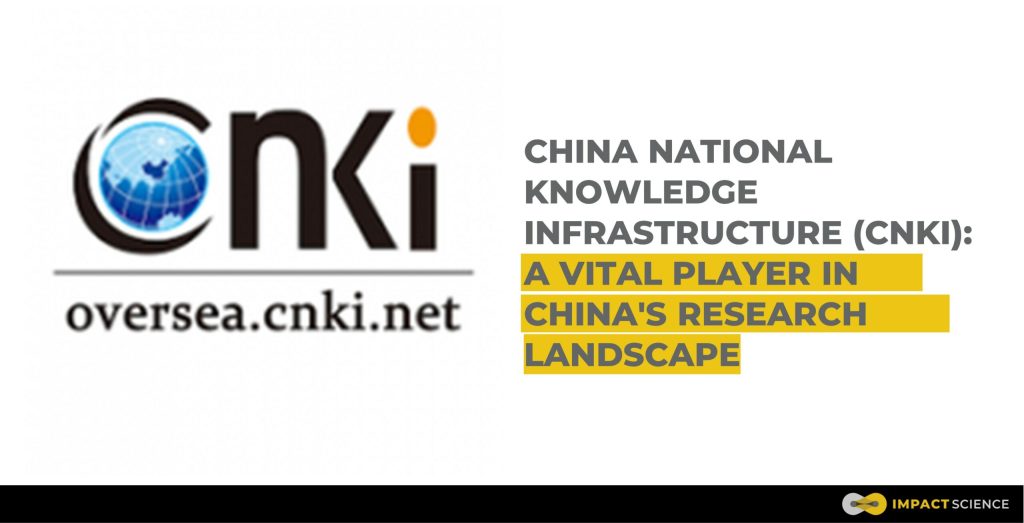Lately, China has been making significant strides across various research domains, catching the eye of Western publishers and academic societies. However, grasping the intricacies of China’s research environment and its key players can be a bit of a challenge. In this article, we’re here to introduce you to CNKI (China National Knowledge Infrastructure), an integral part of China’s research scene, and chat about why it’s crucial for Western publishers and academic groups.
China, the new battleground for Western publishers
The 2023 Nature Index annual list, released on June 15, reveals that Chinese research institutions have taken the lead in the natural sciences, surpassing the United States. In fact, the Chinese Academy of Sciences has maintained its top spot for 11 consecutive years, with an impressive 2022 score of 2,054, outshining second-placed Harvard University at 813. China’s emergence as a global research powerhouse is impossible to overlook.
CNKI, The Chinese Counterpart to Web of Science
CNKI stands for China National Knowledge Infrastructure, was launched back in 1999 Tsing Hua University and Tongfang Co., Ltd. In China, CNKI holds a position just as vital as global databases like Web of Science. When it comes to conducting review studies in China, CNKI is a staple alongside other international databases. Among Chinese academic databases, including China Science and Technology Journal Database, Wanfang Data, Paperpass and paperfree, CNKI stands out as the go-to choice and the most authoritative anti-plagiarism platform. CNKI even offers a commercial plagiarism check service: any content submitted to this service is automatically included in its database for future plagiarism checks. This service is commonly used by public Chinese universities for checking student dissertations.
CNKI’s Mission
CNKI’s specific objectives are as follows:
- Facilitating the large-scale integration of knowledge and information resources to enhance their comprehensive value.
- Building a knowledge resource internet dissemination platform to promote resource sharing, digital learning, and knowledge innovation for society.
- Developing a platform for deep knowledge resource utilization to offer knowledge management and services to various sectors.
- Creating a market environment and business mechanism for internet publishing and distribution of knowledge resources to modernize cultural publishing endeavors.
Key Characteristics of CNKI
CNKI offers comprehensive coverage across diverse research fields, spanning science, technology, humanities, social sciences, and more. The CNKI web version includes features like literature search, knowledge meta-search, and citation search. It boasts a wide array of search resources, including academic journals, theses, conferences, newspapers, yearbooks, patents, standards, results, books, laws and regulations, government documents, and much more. Beyond this, it offers industry knowledge services through various platforms for research, learning, publishing, and evaluation.
The Significance of CNKI for Journals and Publishers
CNKI serves as a vital resource for journals and publishers, not just in China, but around the world. For starters, it provides access to a vast network of researchers and scholars in China through its 8,000+ indexed journals. This presents an excellent opportunity for journals and publishers to connect with a broad audience of potential readers and collaborators. Additionally, being indexed by CNKI can significantly boost a journal’s visibility due to its dominant position in China. Enhanced visibility can lead to more subscribers. Lastly, CNKI aids in disseminating research outputs within the Chinese research community.
The Need for a Sustainable Research Database Business Model
While CNKI plays a pivotal role in the Chinese research landscape, there have been concerns about its business practices. In 2022, the Chinese Academy of Sciences reduced its use of CNKI due to high subscription costs. Over the years, other universities have also questioned CNKI’s pricing policies. For instance, in 2016, Wuhan University of Technology suspended its use of CNKI, and Peking University considered a similar move. In December 2022, the State Administration of Market Regulation imposed penalties on CNKI for market dominance abuse. In response, CNKI accepted the penalties and announced 15 rectification measures. In September 2023, China National Knowledge Network launched an author service platform to better support authors’ rights and interests.
Conclusion
In summary, recognizing CNKI’s significance in China’s research landscape is vital for Western publishers and academic societies aiming to expand their presence in the Chinese market. By collaborating with Chinese journals or tapping into CNKI’s resources, these organizations can increase their visibility, outreach, and impact within the Chinese research community, laying the foundation for potential partnerships and business prospects down the road.









